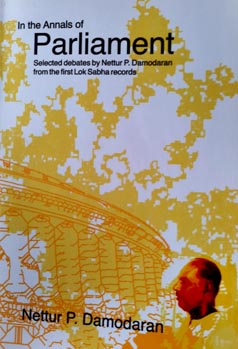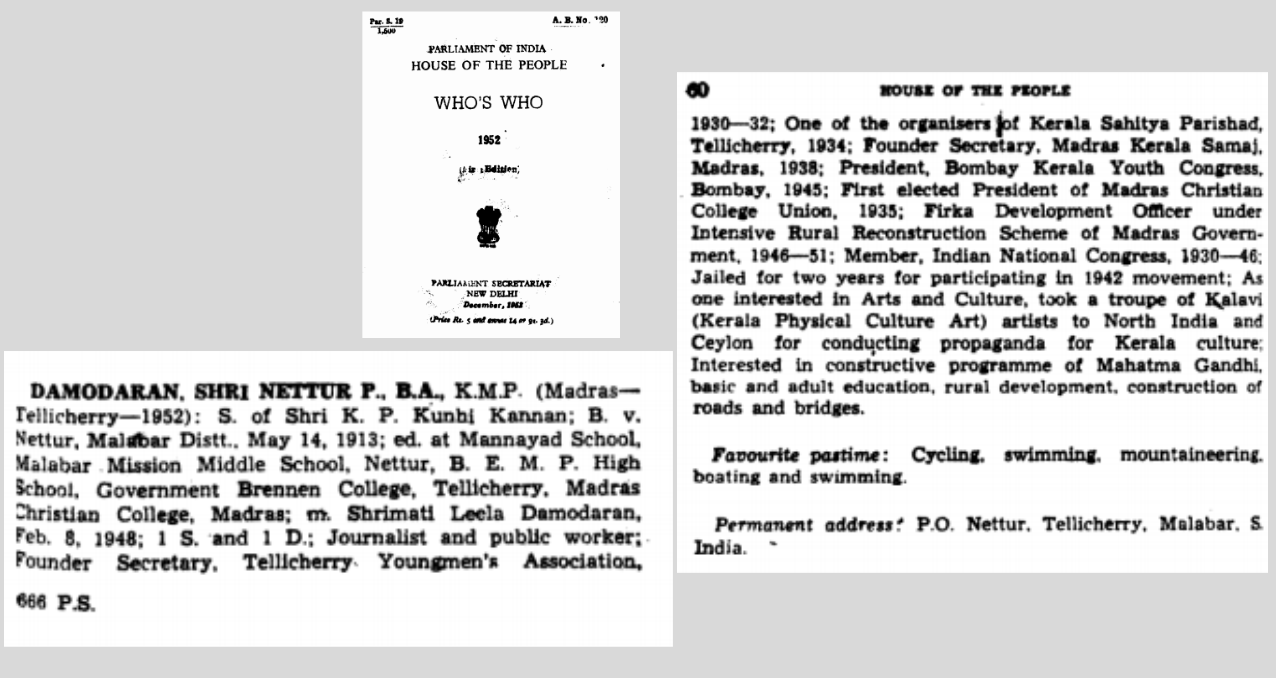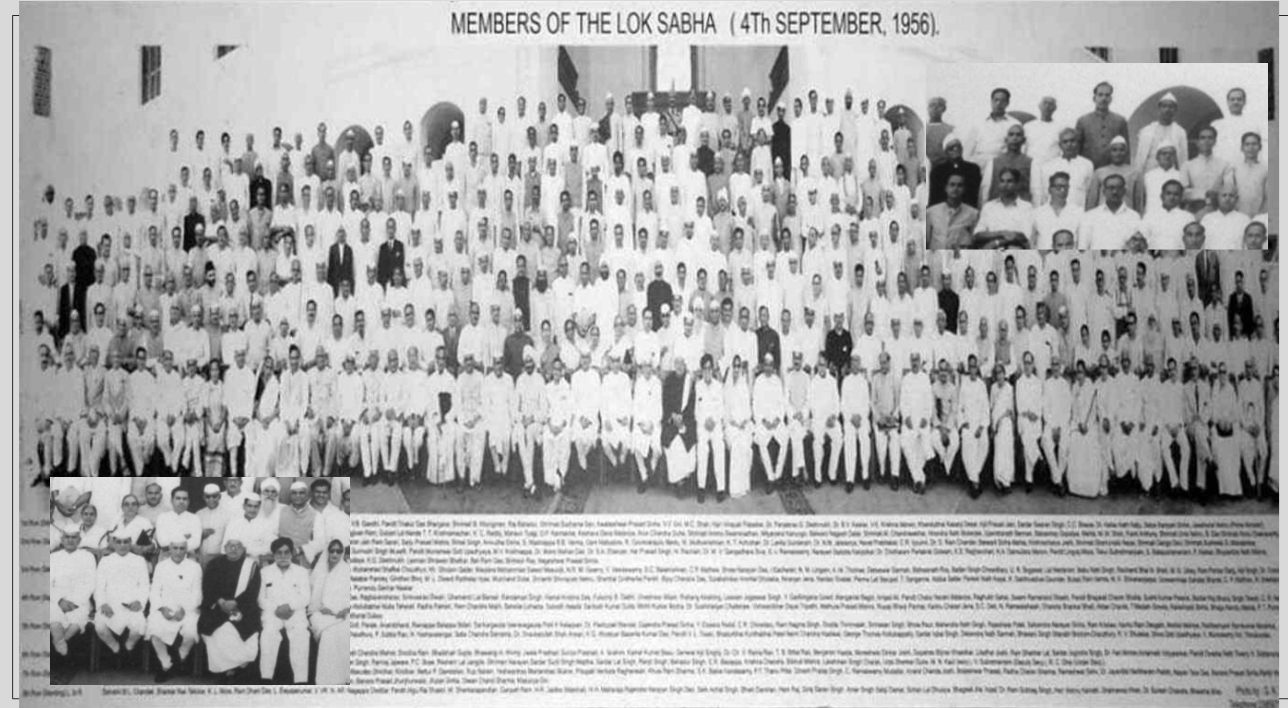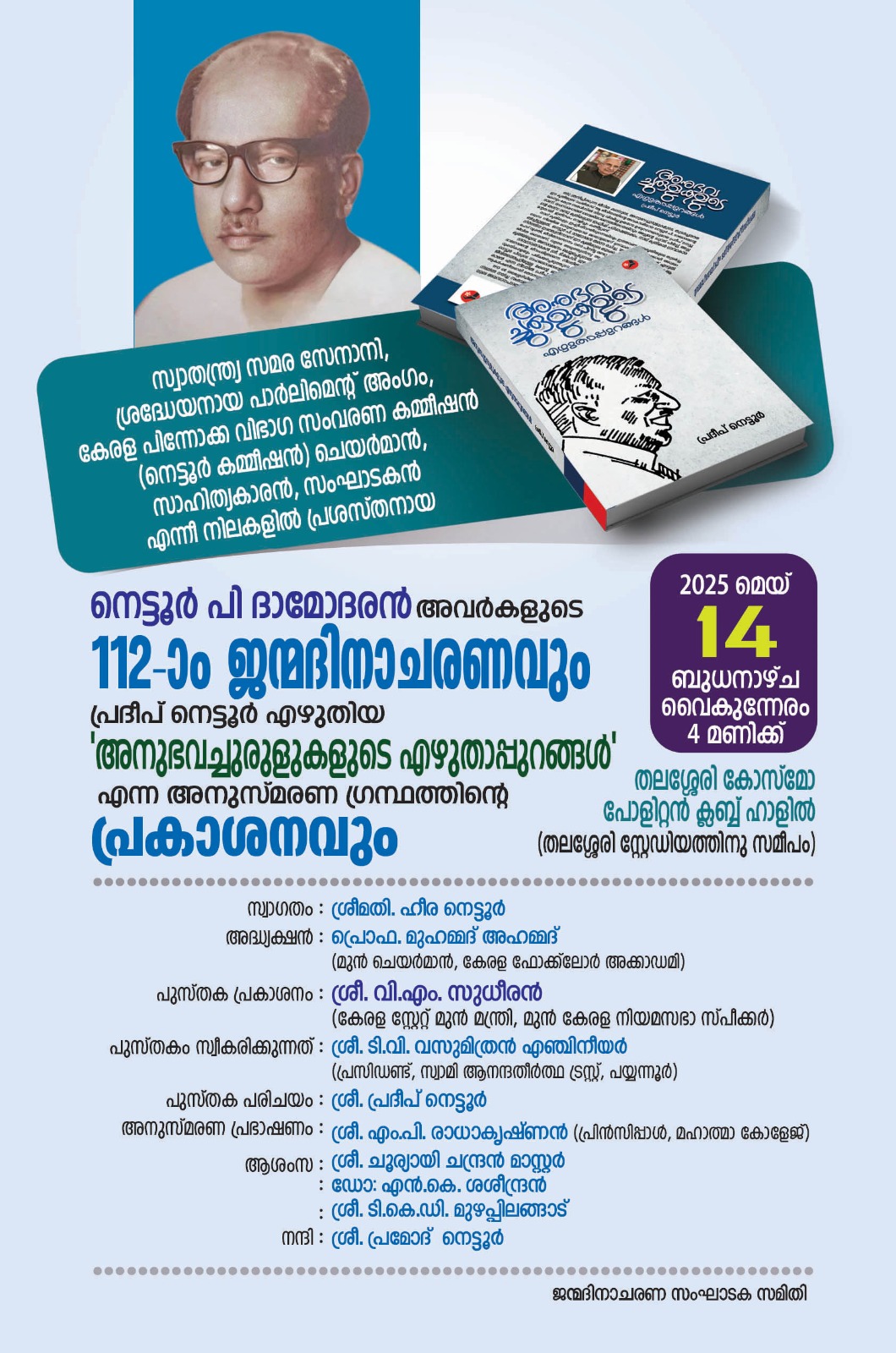In the Parliament of India
The First Lok Sabha was constituted in April 1952 after India's first general election. It lasted its full tenure of five years and was dissolved on 4 April 1957. First Session of this Lok Sabha commenced on 13 May 1952. Constituted in the heady days after gaining independence, the Parliament displayed remarkable vitality, and initiated numerous programmes and schemes for strengthening the economic, social and administrative bases of the nation.
Nettur P played a very constructive role in the house by taking up issues that needed immediate attention for the budding nation to evolve and progress on a long-term perspective. His approach was objective and holistic, keeping the overall welfare of the people and uniform growth in the country. While he certainly followed all local requirements, he never limited his interventions or speeches to his constituency, to Malabar or even Kerala. They were visionary proposals with sound arguments encompassing the nation as a whole.
This can be seen in his very first speech in the Parliament, made on 9th June 1952, while speaking on the demands for grants for Railways. The cases marshalled by him for the South Western part of the nation commenced from Cochin – Quilon line, which was already on the anvil, and went on to the need to extend it up to Kanyakumari, keeping in view the uniform growth of the western area from Mangalore to Kanyakumari. Not stopping at that, he mooted the idea of laying a new line, connecting Mangalore with Bombay, drawing the Parliament’s attention to the blankness of this particular area in the Railway map of India. Thus, it was in fact he who initiated this great project, bringing up the need for a project serving the Konkan and linking two important cities on the west coast, Mangalore and Bombay, for the first time in Parliament , that too in his first speech.
Another first in that particular speech was his impassioned appeal for the Thalassery – Mysore Railway project, connecting Malabar and the uplands, for the overall progress of three vital areas of South India - Malabar, Coorg and Mysore - ruled by three different entities prior to independence. He displayed the same zeal in raising the issue of lack of Railway lines in Vindhya Pradesh, the biggest state of India having only 100 miles of railway lines.
He pleaded for two new railway lines in this area, one from Anooppur to Sengrowli and another from Sengrowli to Reva in the same speech. Many of these cases were taken up again by him with renewed vigour on 3rd March 1955, while speaking on Railway requirement of western coast. He had only one vision, of bringing people closer for the economic and uniform growth of India.
Another issue taken up by him, for the first time in Parliament, was the urgent requirement of Calicut airport. He dealt on diverse subjects, utilising every opportunity he got to intervene in Parliament. They ranged from matters related to External affairs, Community development, Redrawing the administrative map of India on linguistic, economic considerations etc. He always made in depth study before presenting his case and supported his points with sound reasons. Looking back more than half a century later, one can imagine the extent of long-term vision that he displayed then and derive satisfaction of the fulfilment of most of them, at least for the benefit of the next generation.
Celebrated journalist V. K. Madhavankutty, in his memoirs had sketched many of the qualities of Nettur P, while remembering him as a Parliamentarian. They included his style and substance of raising questions, capacity to draw the attention and appreciation of the rulers and opposition alike, and his simplicity of cycling to Parliament on his bicycle. In fact, this bicycle commuting by an MP was mentioned in Parliament by none other than Panditji, which news was carried as a box news by the Malayalam dailies of the time.



